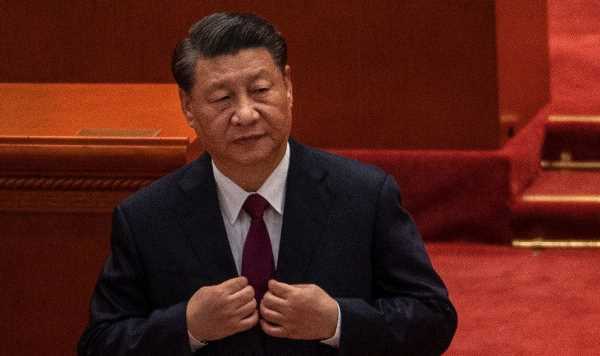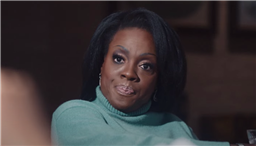Western Australia has avoided the COVID chaos seen in Australia’s eastern states, and across much of the world, never hitting the peak in cases that was predicted.
Now, the state government has announced COVID restrictions will ease later this week, returning WA to a state of relative normalcy residents have come to expect, after Premier Mark McGowan’s “careful and cautious” approach over the years paid off.
As McGowan himself remained in isolation with the disease, Health Minister Amber-Jade Sanderson told of how the state had avoided “mass loss of life, long rotating lockdowns and economic devastation”, and was now ready to remove the majority of the remaining restrictions.
This would be the new normal, for now, she said. WA had been spared the loss and heartache experienced around much of the world.
“While these with these changes case numbers may rise and hospitalisations may rise, but it can be managed,” Sanderson said.
She noted the pandemic was not over, and could still be dangerous for vulnerable people.
“But with our world-leading vaccination rates a stable level of spread no longer risks a dramatic loss of life,” she said.
WA was an experimental population, where although cases had gone up, hospitalisations and ICU admissions had remained fairly level.
McGowan said the people of WA had been “magnificent” in following the rules to slow the spread.
“I’m confident saying that Western Australia and Western Australians have performed the best of anywhere in the entire world in terms of following the rules, doing the right thing and achieving amazing outcomes,” he said.
“We’ve achieved our soft landing out of COVID; best economic outcomes in the world; best health outcomes in the world. That’s what we were aiming for the whole way through.”
But Australian Medical Association WA president Dr Mark Duncan-Smith said would have preferred the announcement to have said masks were now voluntary, rather than emphasise the mandates were over.
He urged the government to closely monitor case numbers to try to avoid another COVID wave.
“I am greatly concerned that we may be going too soon,” he said.
There was no doubt this decision would lead to increased hospitalisations and deaths.
“What the McGowan government is gambling on, is that it won’t be too many,” Duncan-Smith said.
Sanderson said the government would need to remain agile and responsive to the pandemic.
“I know there may be some anxiety about it with some members of the community,” she said.
“What I will say is do everything right. Look after people. If you want to wear a mask, you absolutely can wear a mask. What we’re saying to people, though, is that you don’t have to.”
Mark McGowan issued a video message from his backyard while in isolation. Credit:WA state government
Curtin University global public health researcher, Professor Jaya Dantas, supported Sanderson’s approach, saying she thought WA was ready for the next step.
“I think we should keep masks handy, just like a jacket you might bring with you in case it’s cold, if you are in a crowded area or feel like you need it, you can put it on,” she said.
“For the most part, except for the listed settings where they are still mandatory, masks can be left as a personal responsibility.
“I think we could see a slight increase in case numbers, but it would only be of concern if hospitalisations caused by COVID were to increase.”
Dantas said WA had been focused on a zero-COVID strategy since the beginning of the pandemic, which had led to such positive results when compared to the rest of the world and other states.
“The anti-viral drugs are now the next step in managing the virus, to be prescribed by GPs to those who need them, particularly the immunocompromised or elderly,” she said.
WA’s ‘new normal’
Public health measures will from Friday be minimal and targeted towards high-risk areas.
“Firstly, all capacity and gathering limits will be lifted. No two-square-metre rule, no caps on visitors to the home and no caps on weddings or funerals,” Sanderson said.
“There’ll be no limit on community sports stadiums or major events.
“We will be taking off the blanket indoor mask mandate. No more masks required … in the office or at indoor gatherings.”
Masks would only be necessary in hospitals, aged care and disability care facilities, prisons and correctional facilities as well as on public transport and in taxis and ride-shares.
Quarantine requirements will also shift, with asymptomatic close contacts no longer required to isolate but instead to follow a number of other rules.
From Friday at 12.01am, the new measures will kick in.Credit:WA Government
“Wear a face mask when you’re outside the home. Avoid high-risk settings and undertake daily RATs. They will be encouraged to work from home where possible and avoid non-essential gatherings and people at risk of severe illness,” Sanderson said.
“If your partner is sick at home with COVID you can leave to go to the shops wearing a mask, but you shouldn’t go to a nightclub or visit an elderly relative.
“If you develop symptoms and test positive, you are then required to quarantine for seven days.”
Proof of vaccination will no longer be required for entry to the majority of venues, except hospitals and aged care facilities.
“WA had been spared the heartache and loss and chaos that we have seen around the country in the world … because of our careful and cautious approach to this pandemic.”
Sanderson said she would still encourage people who were not vaccinated to stay away from the pub and “to consider the vulnerable members of our community.”
Unvaccinated international arrivals will still need to complete seven days quarantine, in line with federal requirements, but the requirement to be triple-vaccinated and to fill out a G2G Pass will be lifted for interstate travel.
Travel to remote Aboriginal communities will remain restricted regardless of vaccination status.
McGowan said this was a big step forward for WA.
“This is actually much better than we predicted at the start of this year when Omicron started to come in to WA,” he said.
The Premier urged people to use common sense and stay home if they felt sick, or if positive for COVID-19.
The Morning Edition newsletter is our guide to the day’s most important and interesting stories, analysis and insights. Sign up here.
Most Viewed in National
From our partners
Source: Read Full Article




